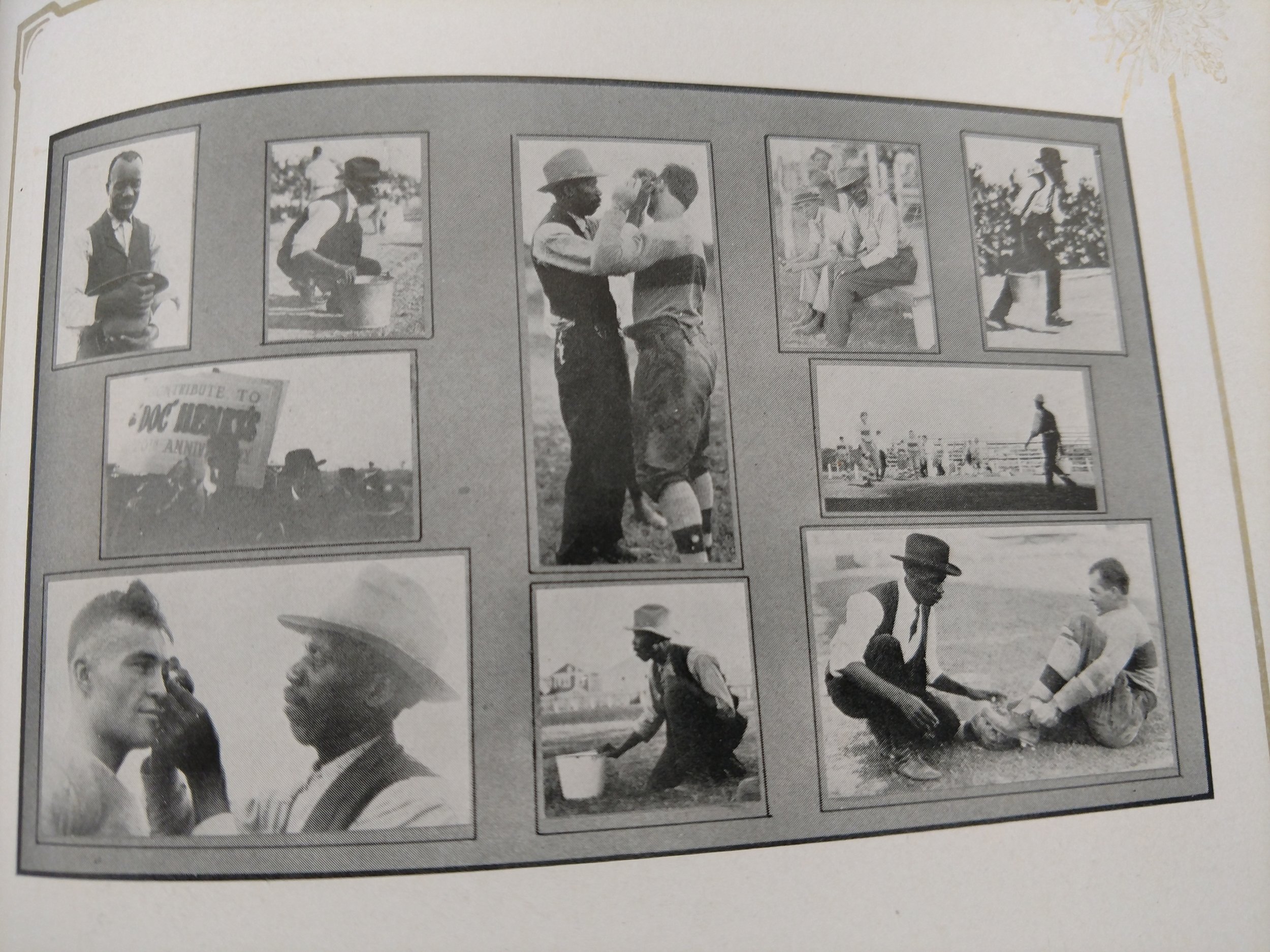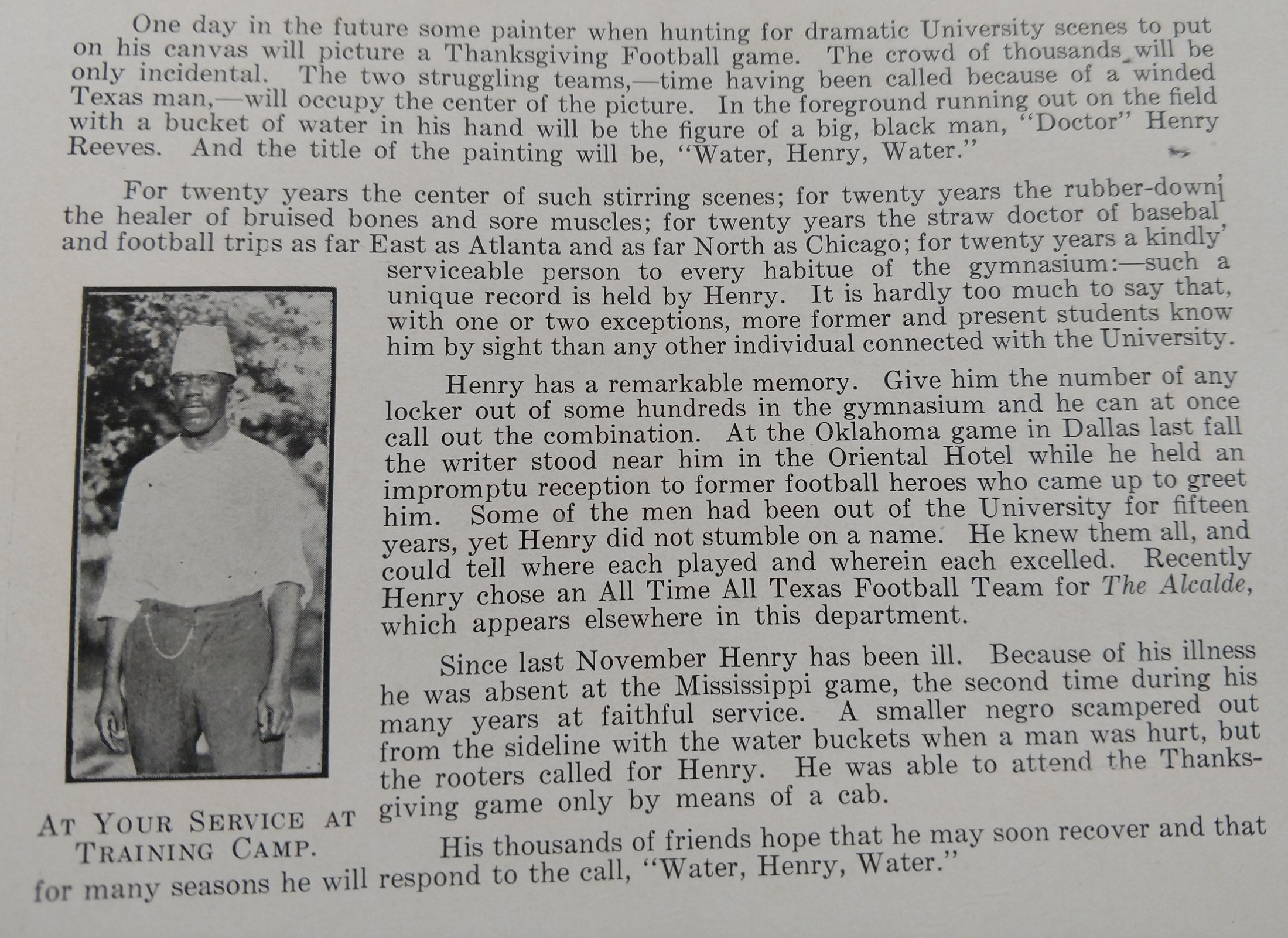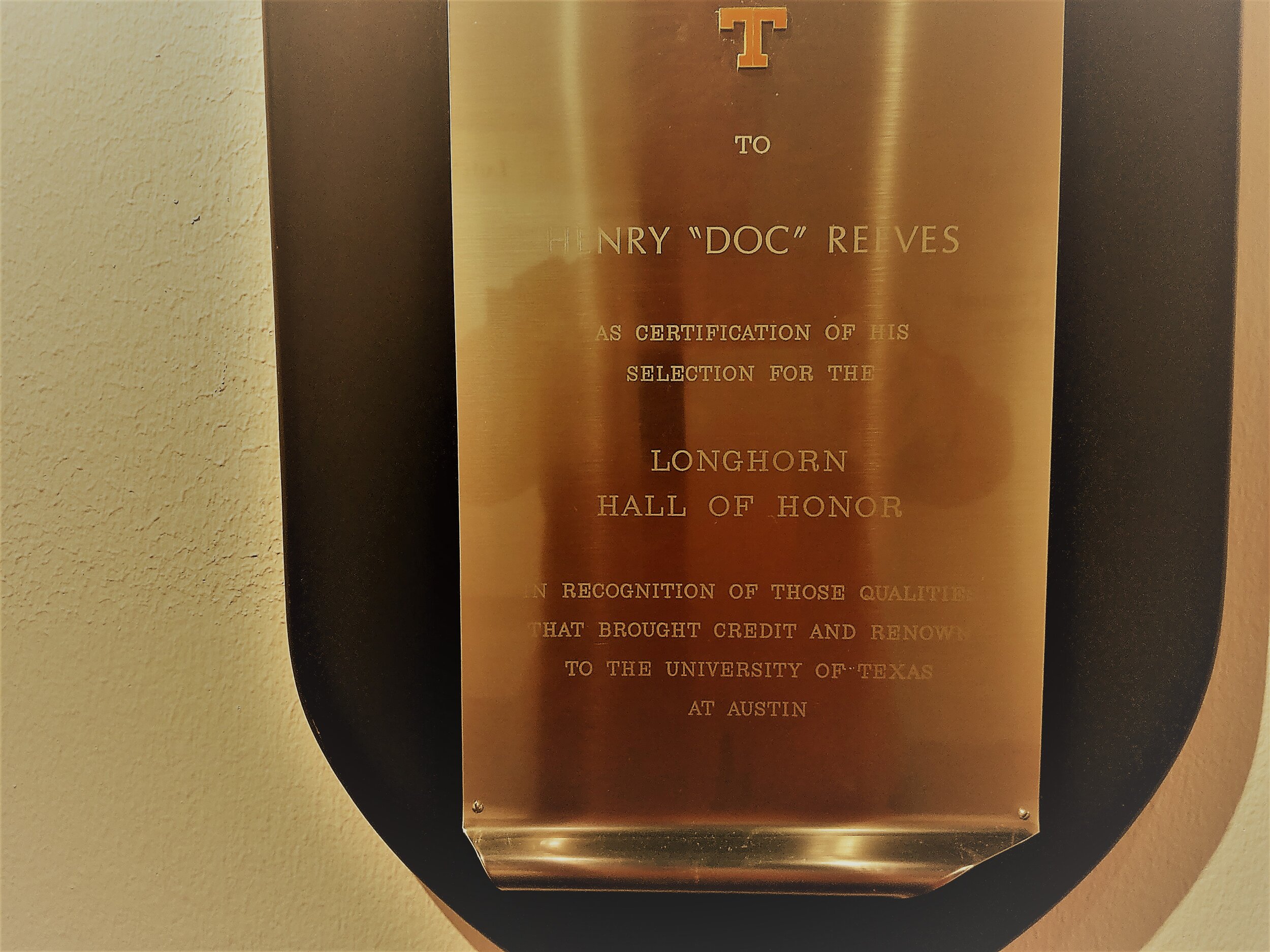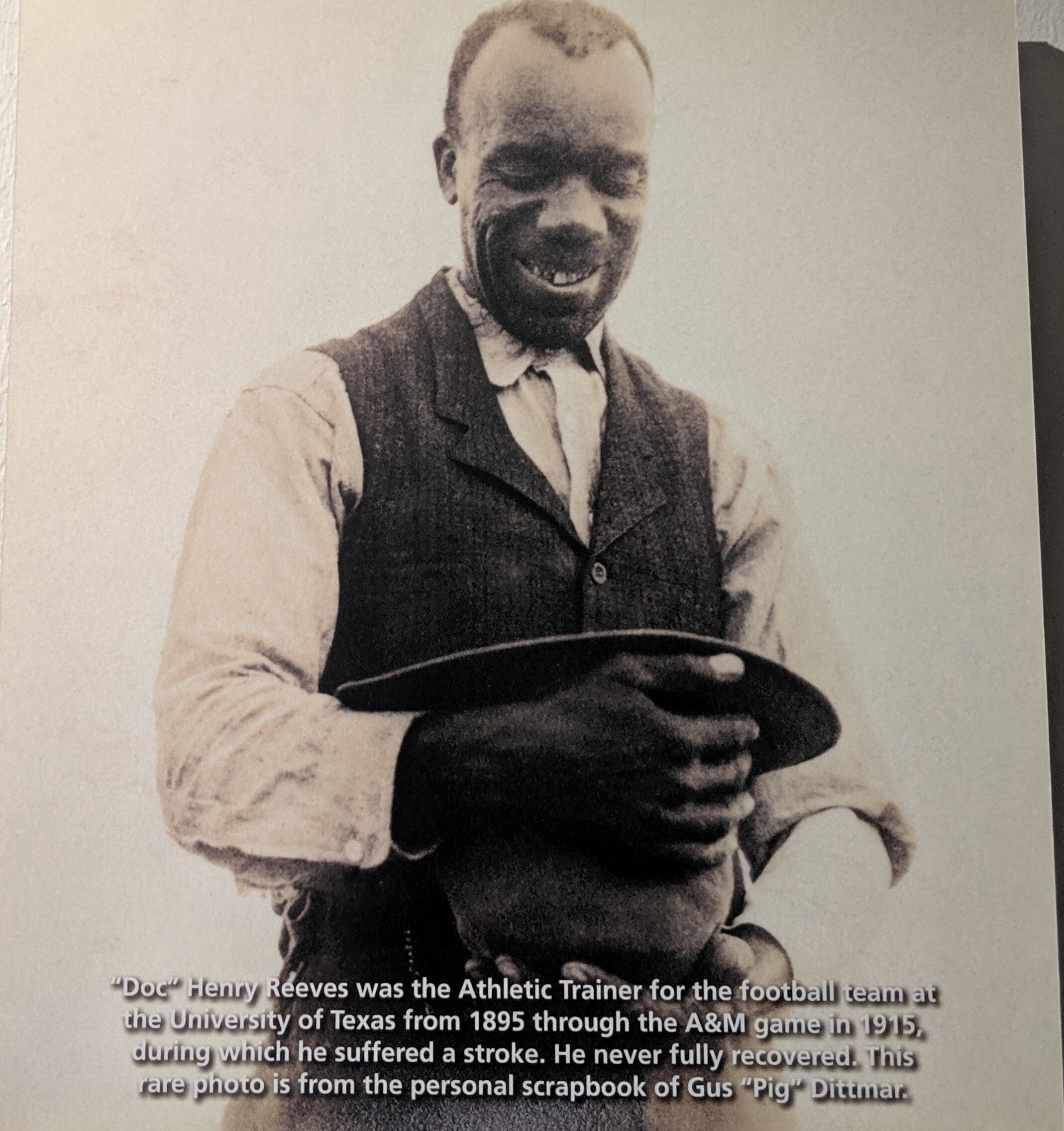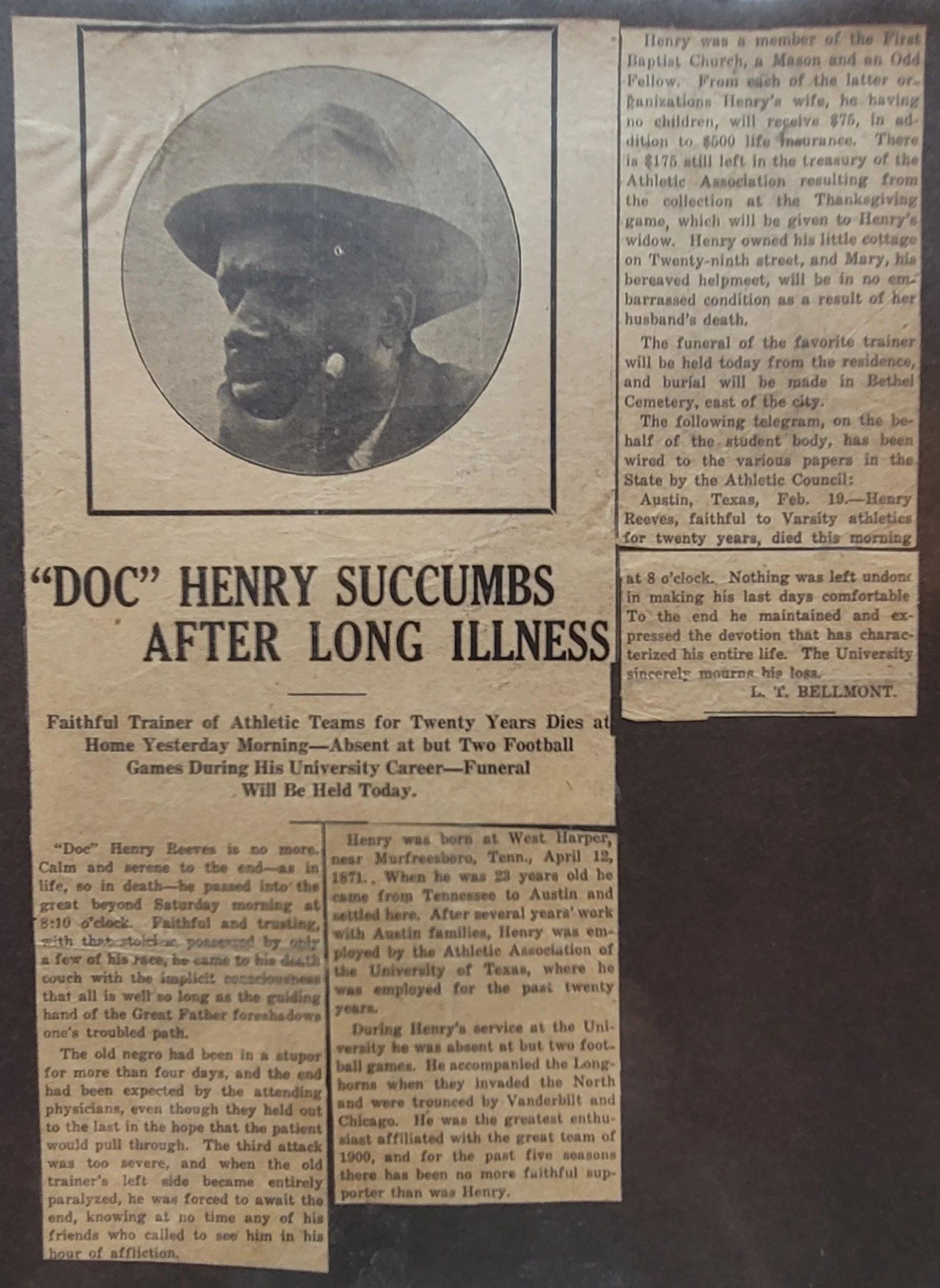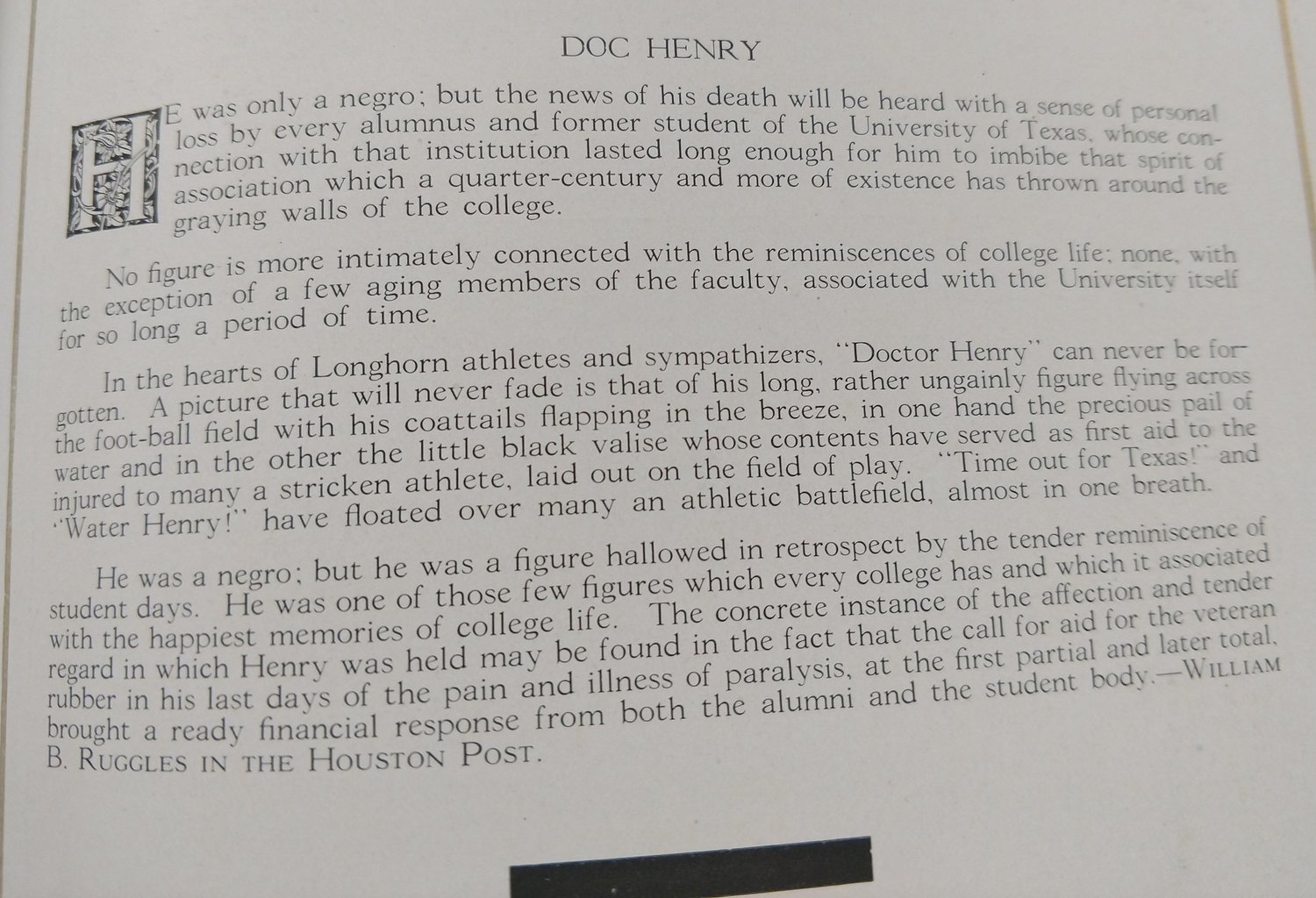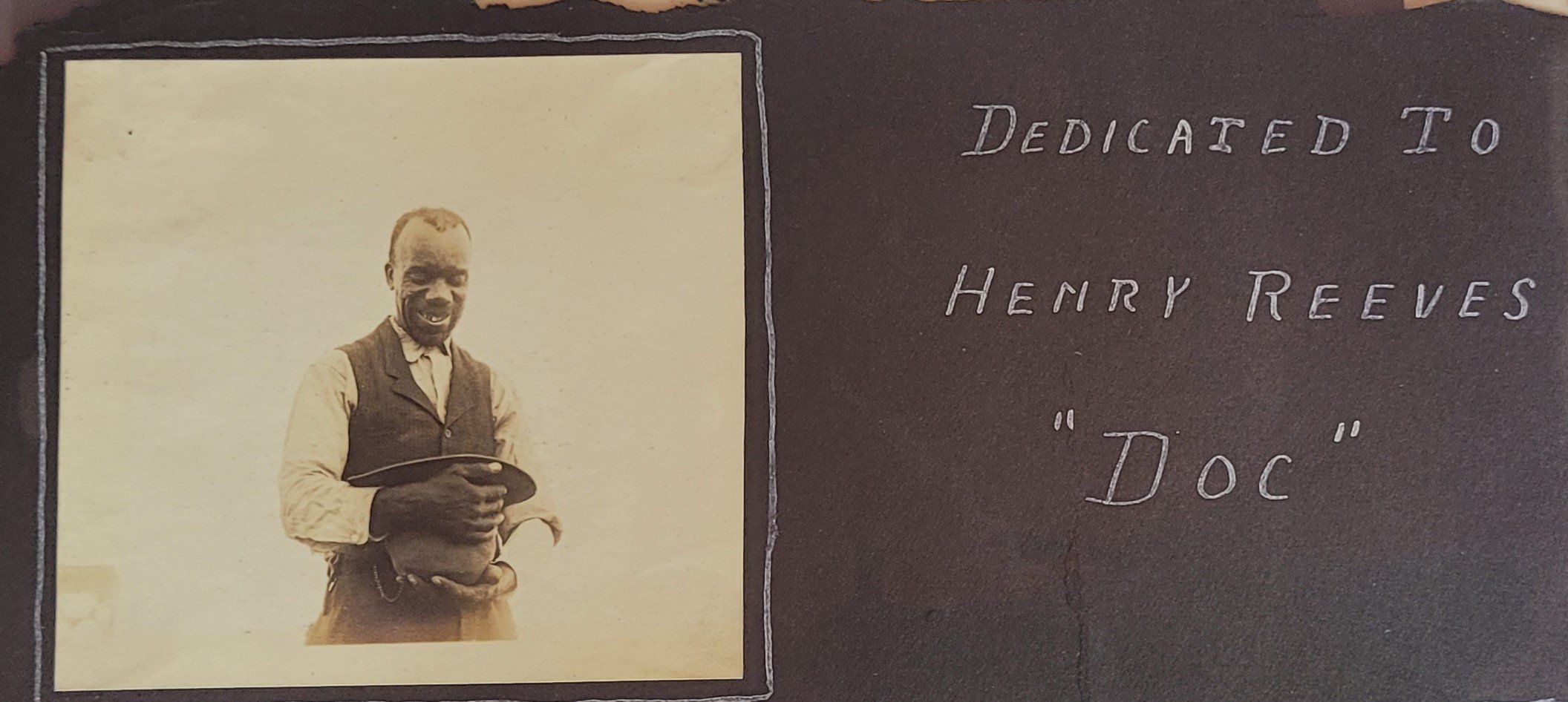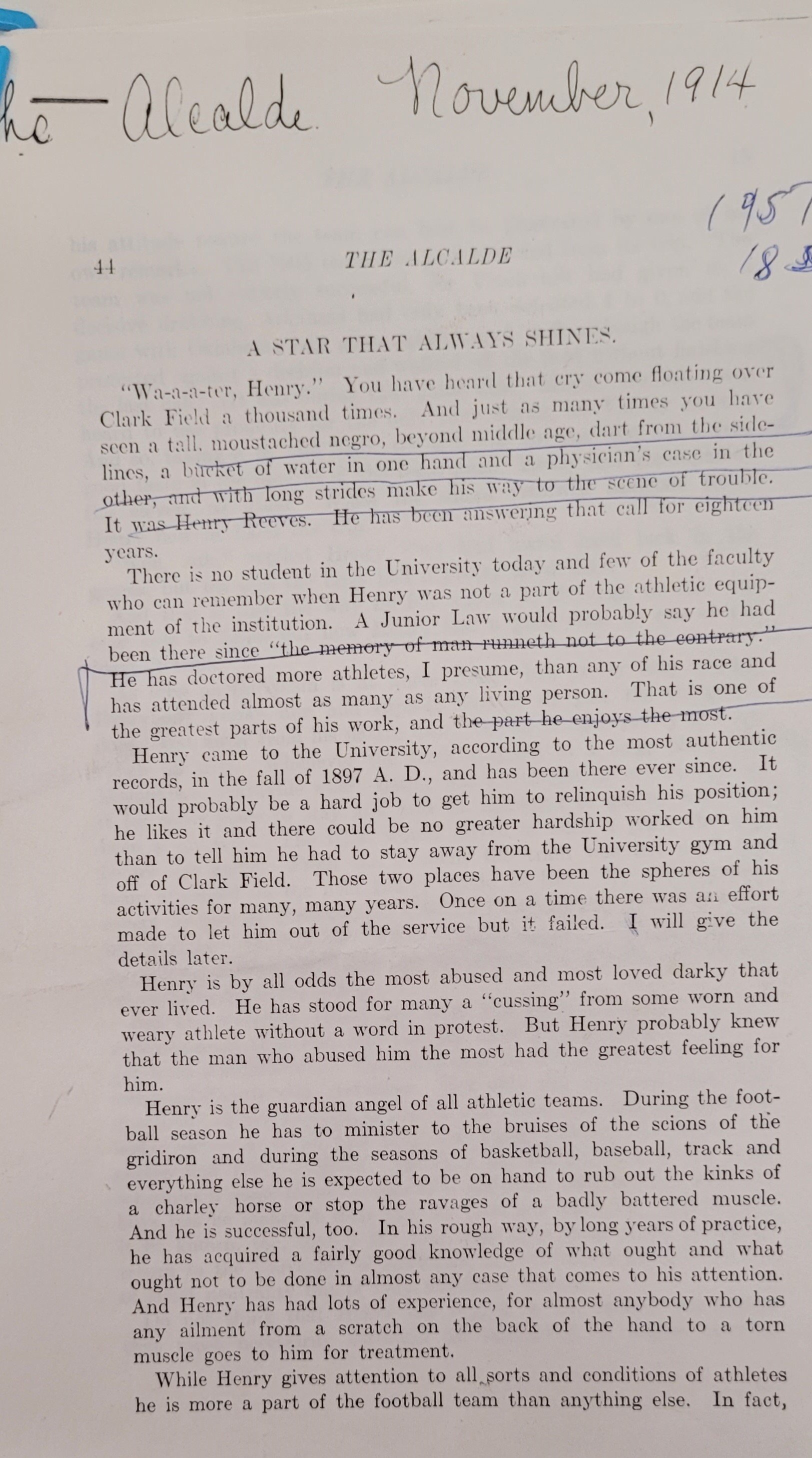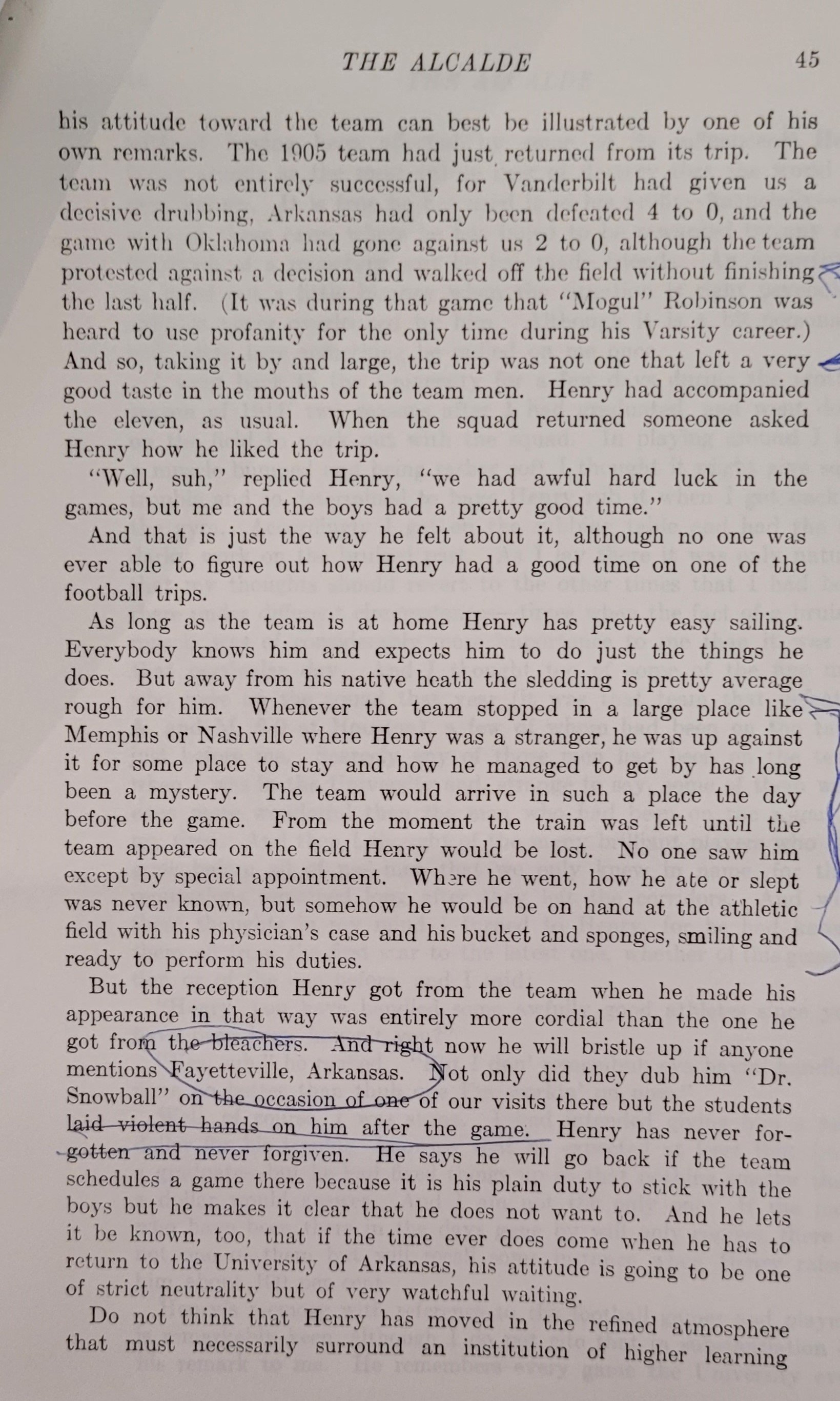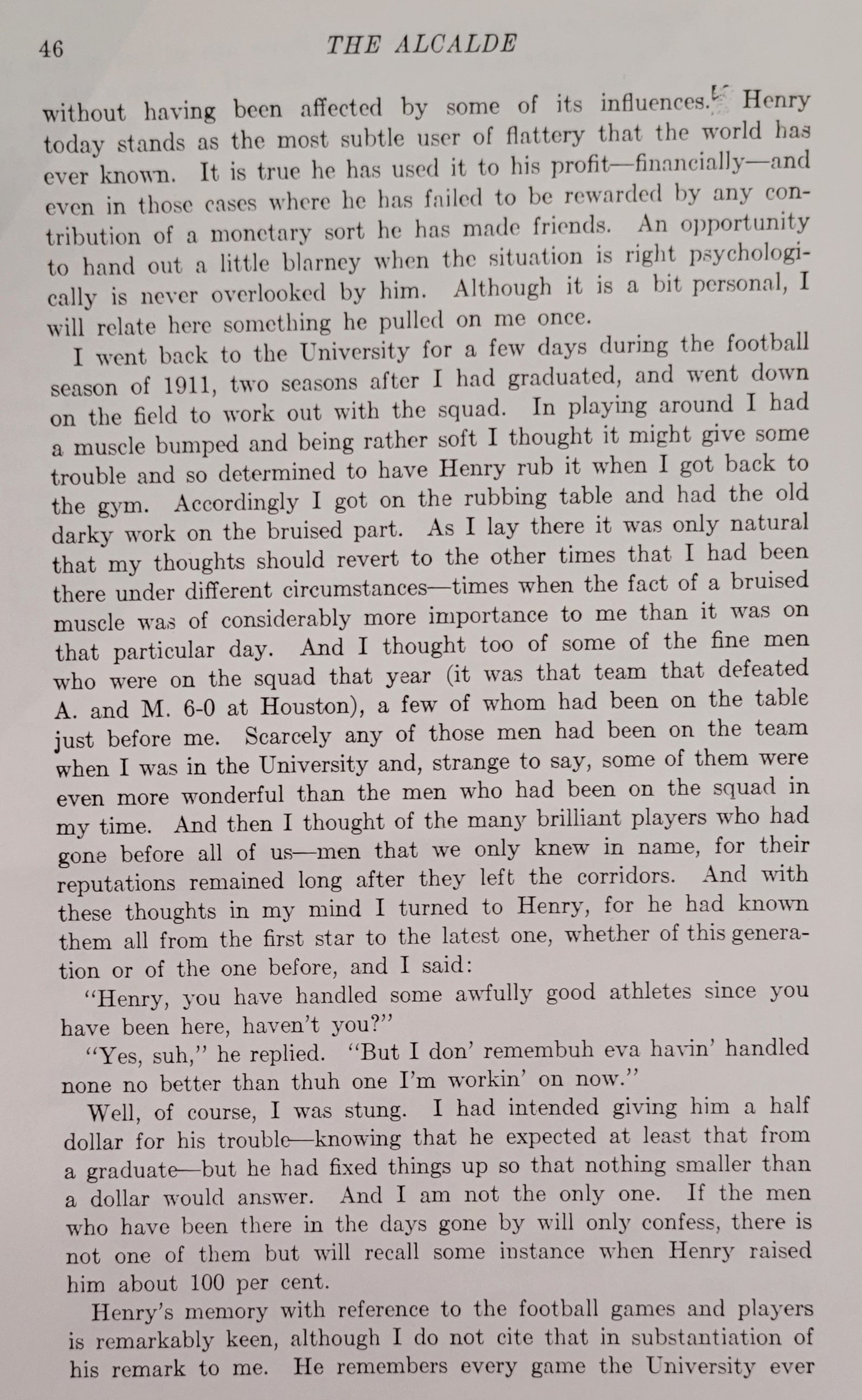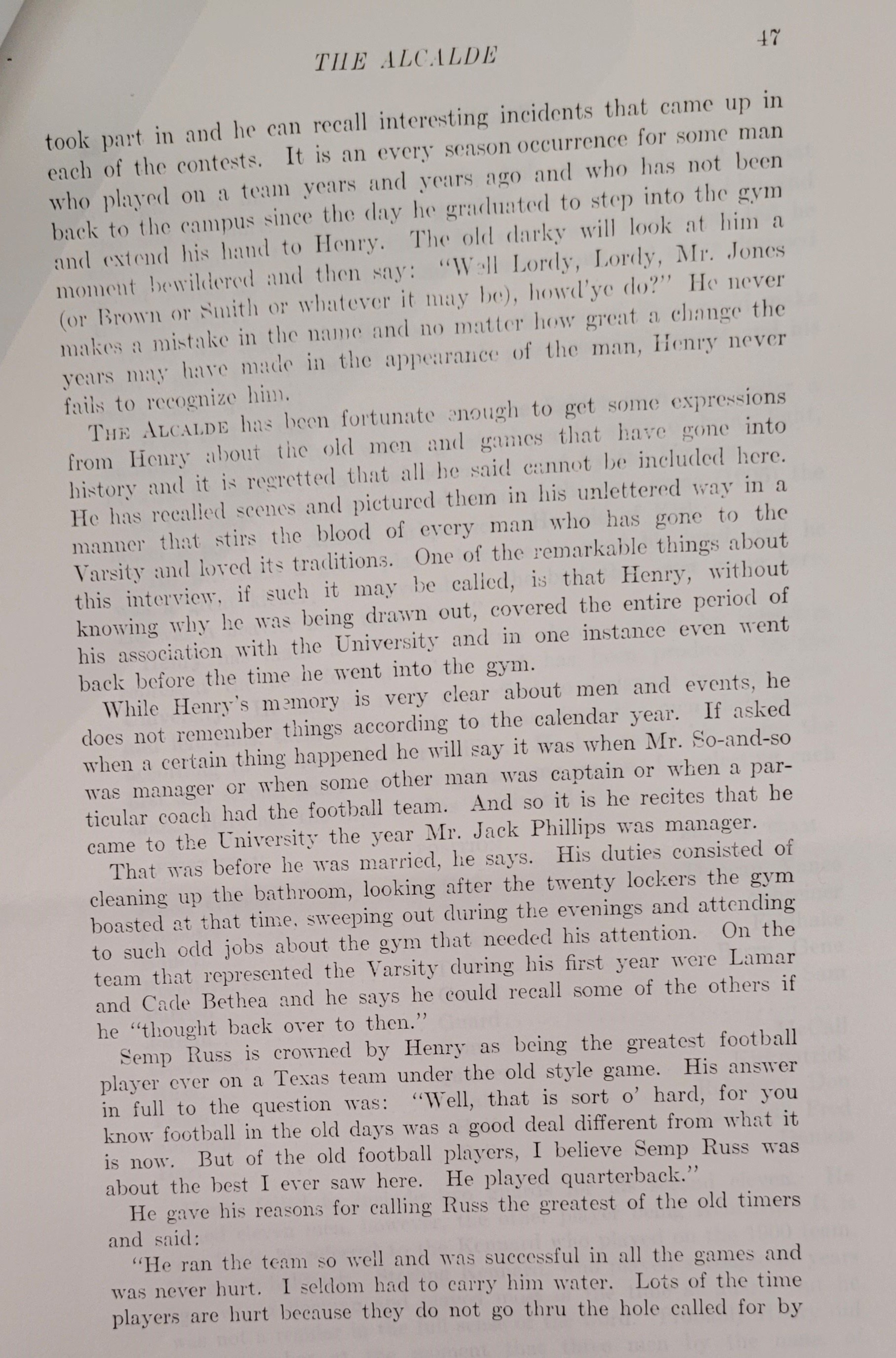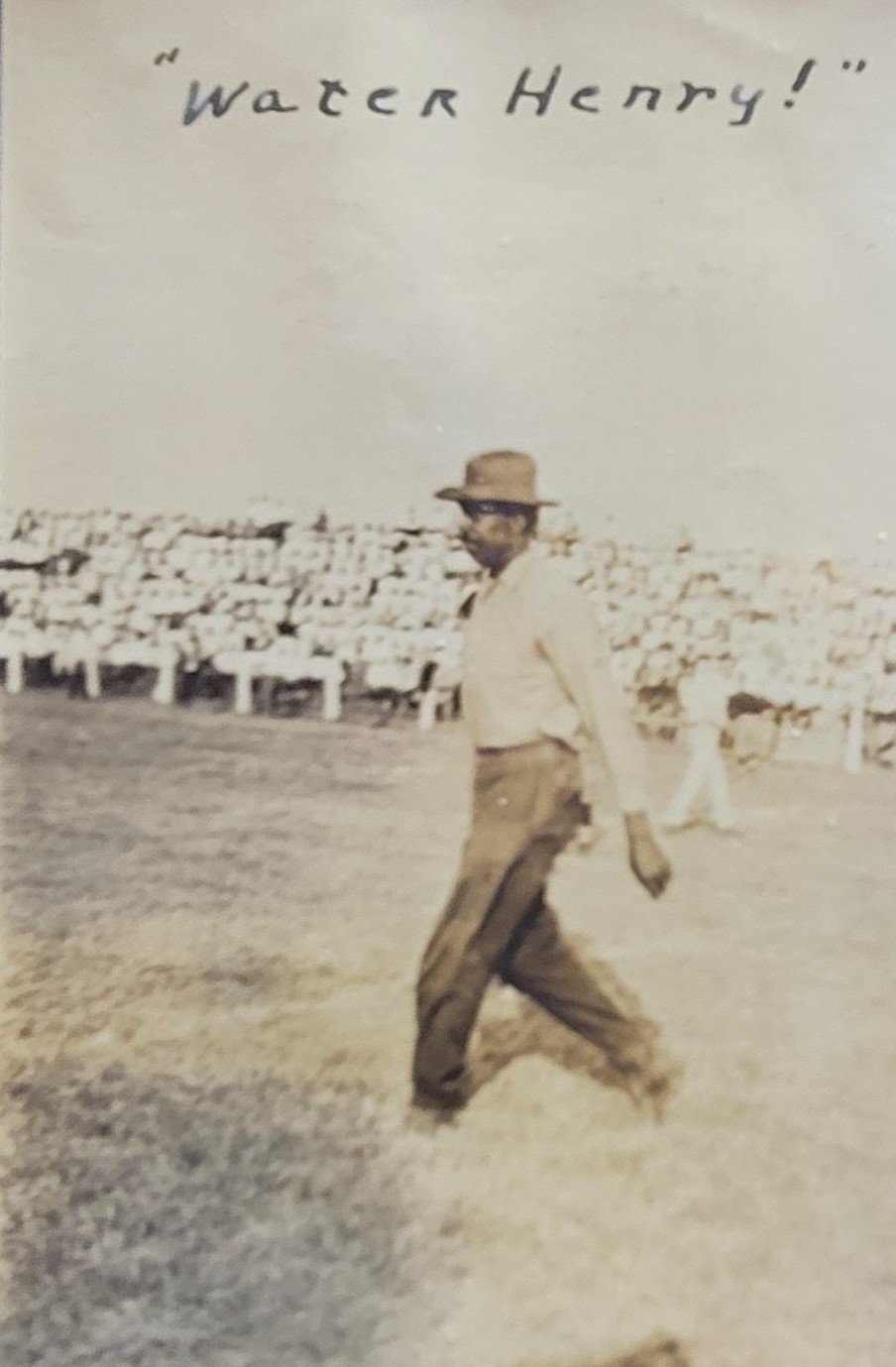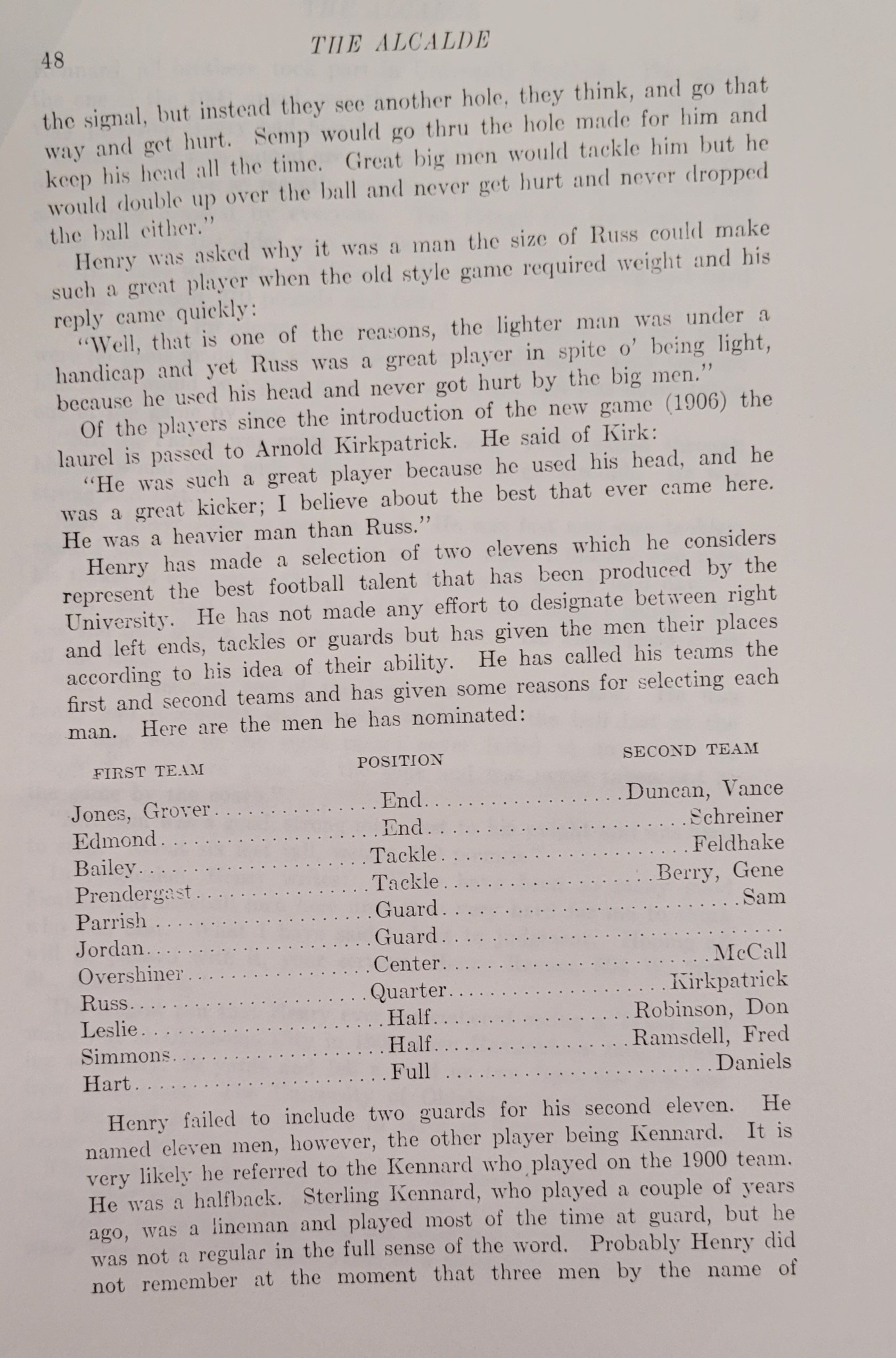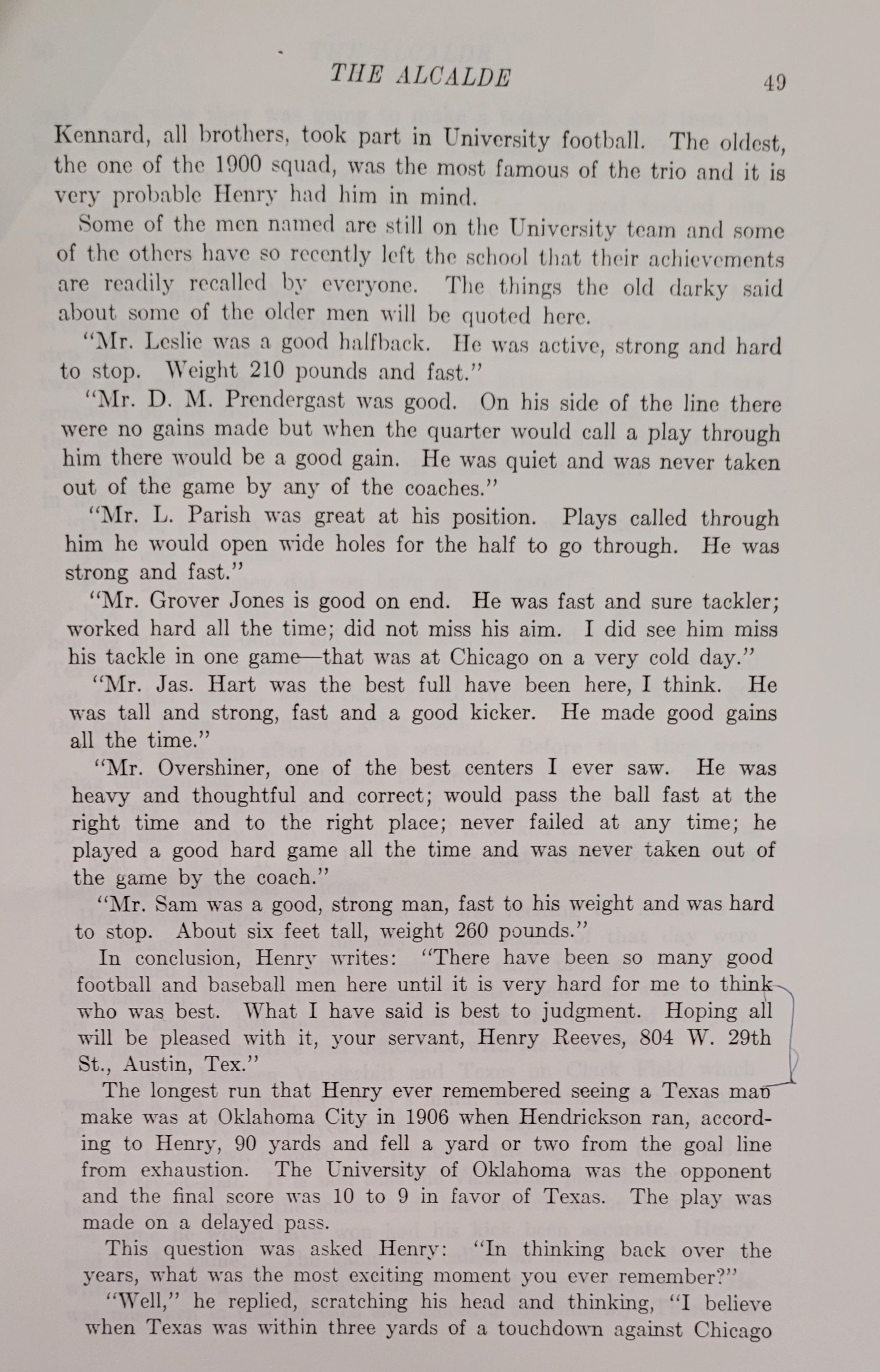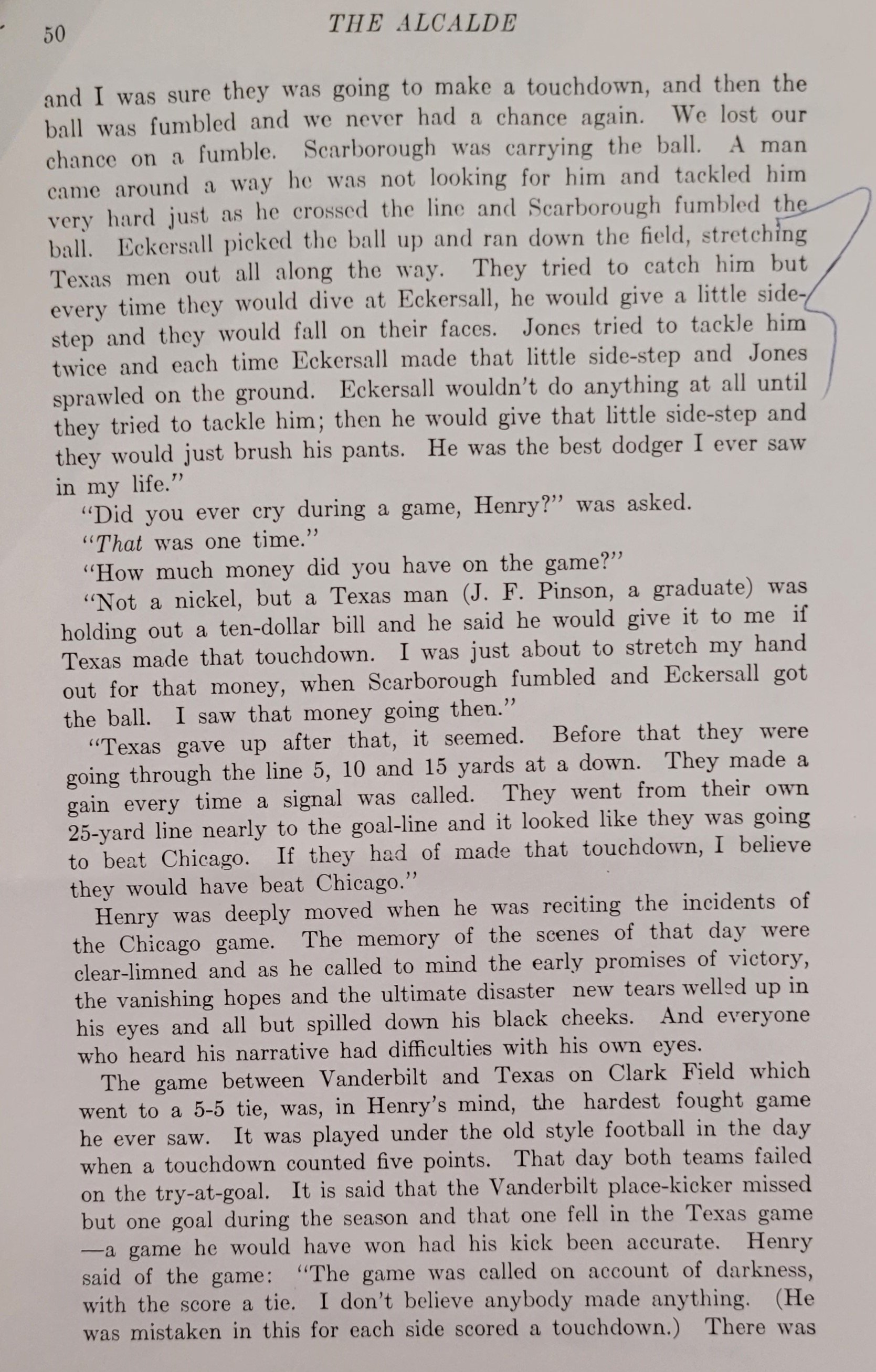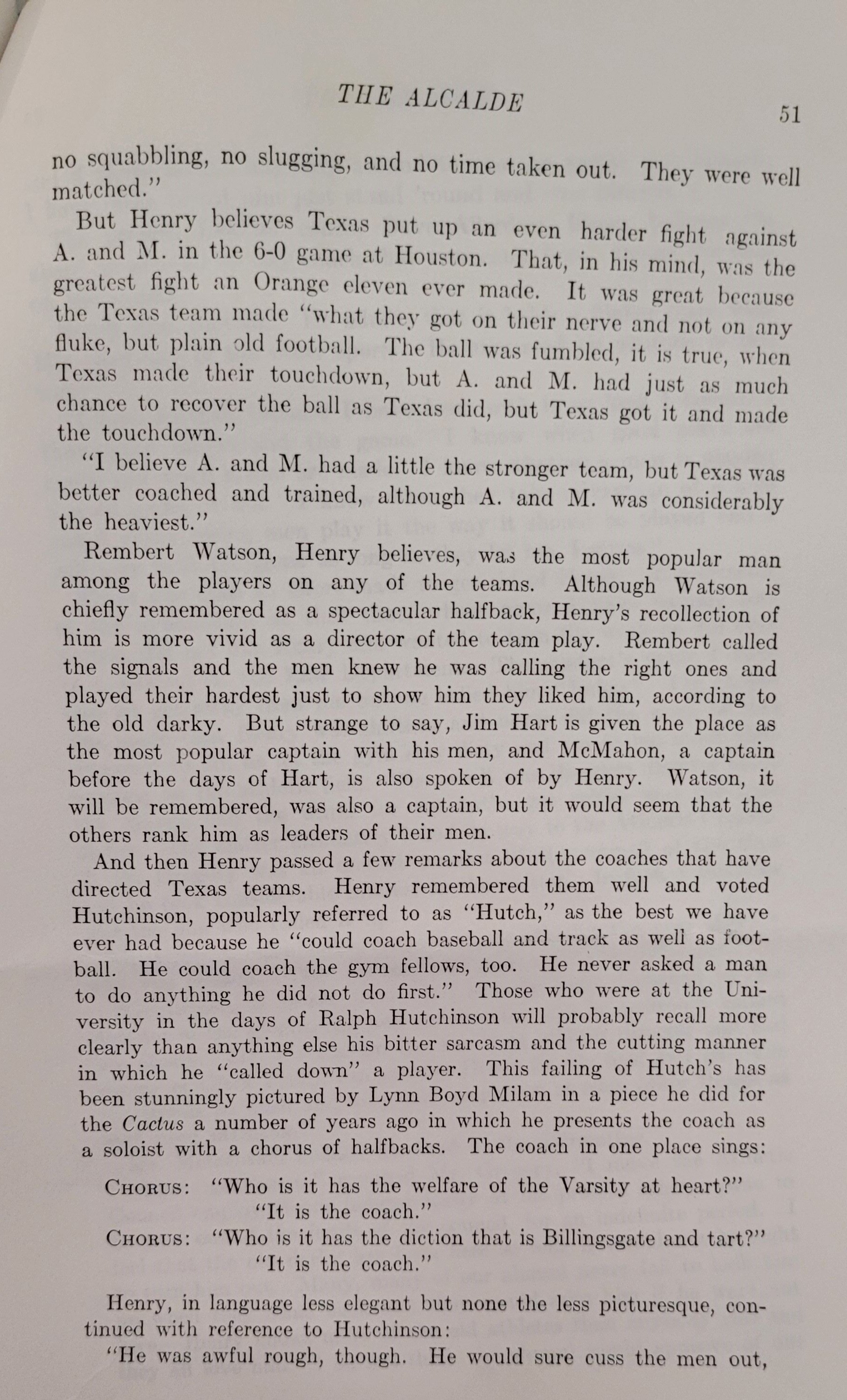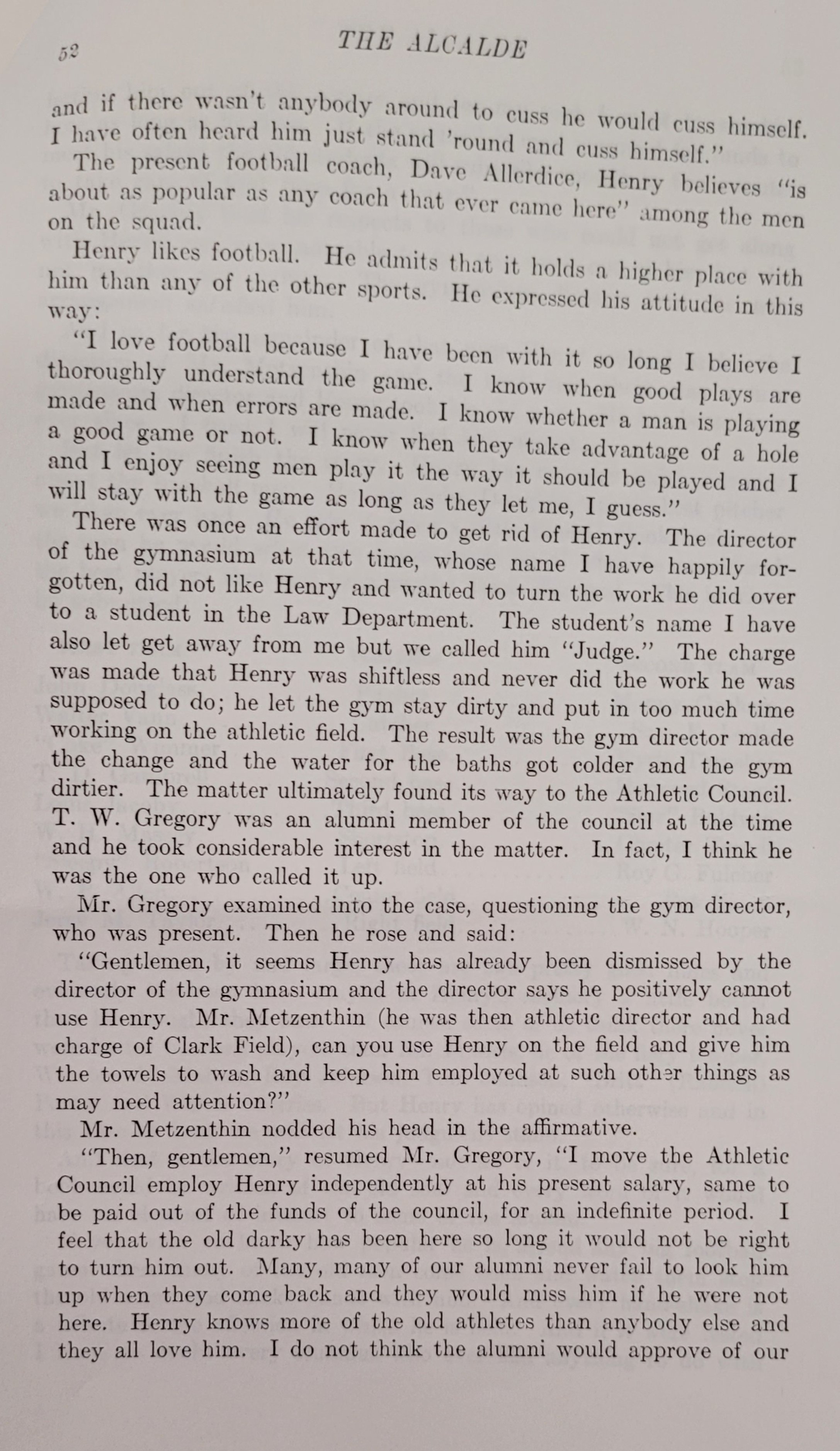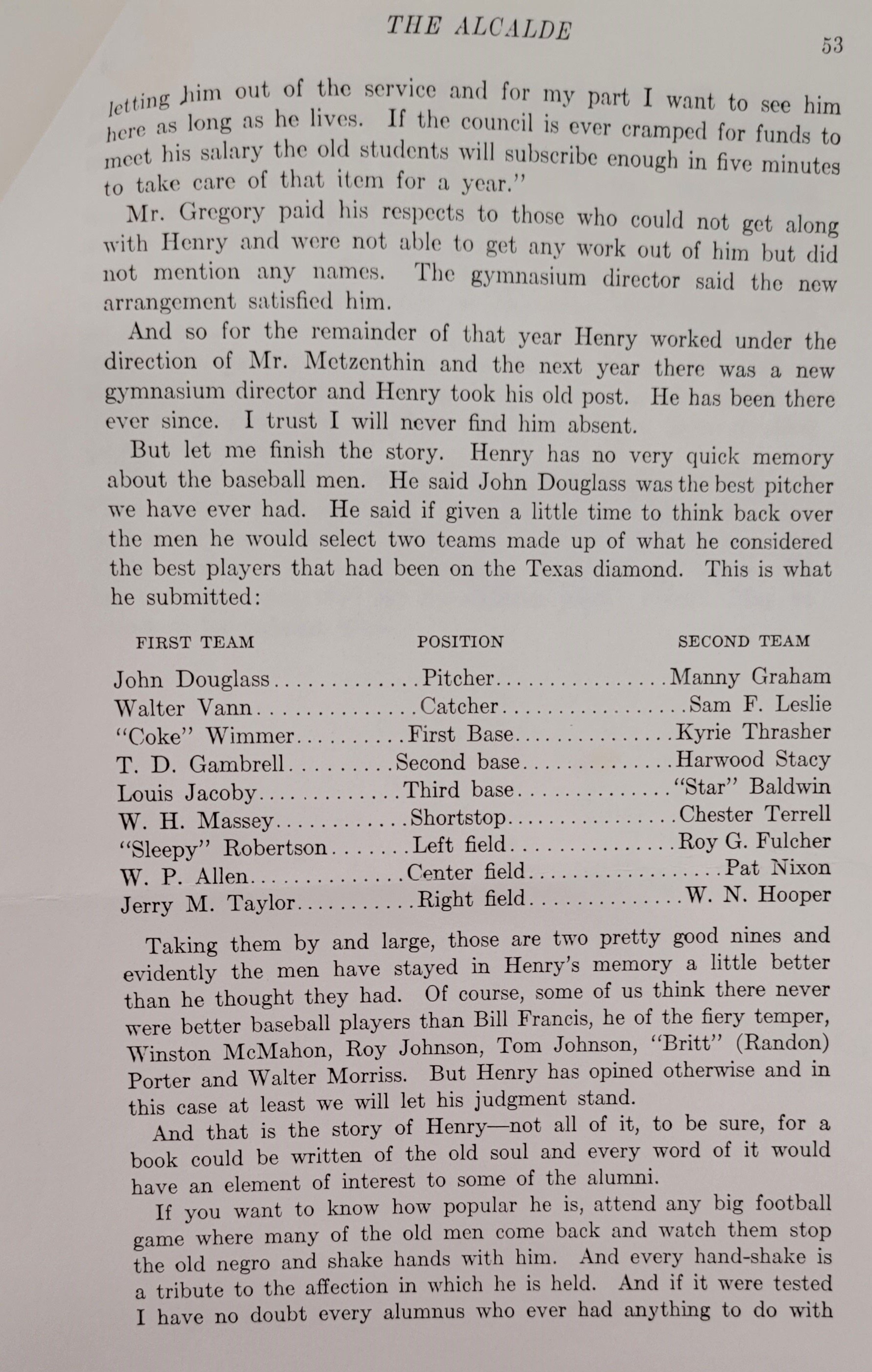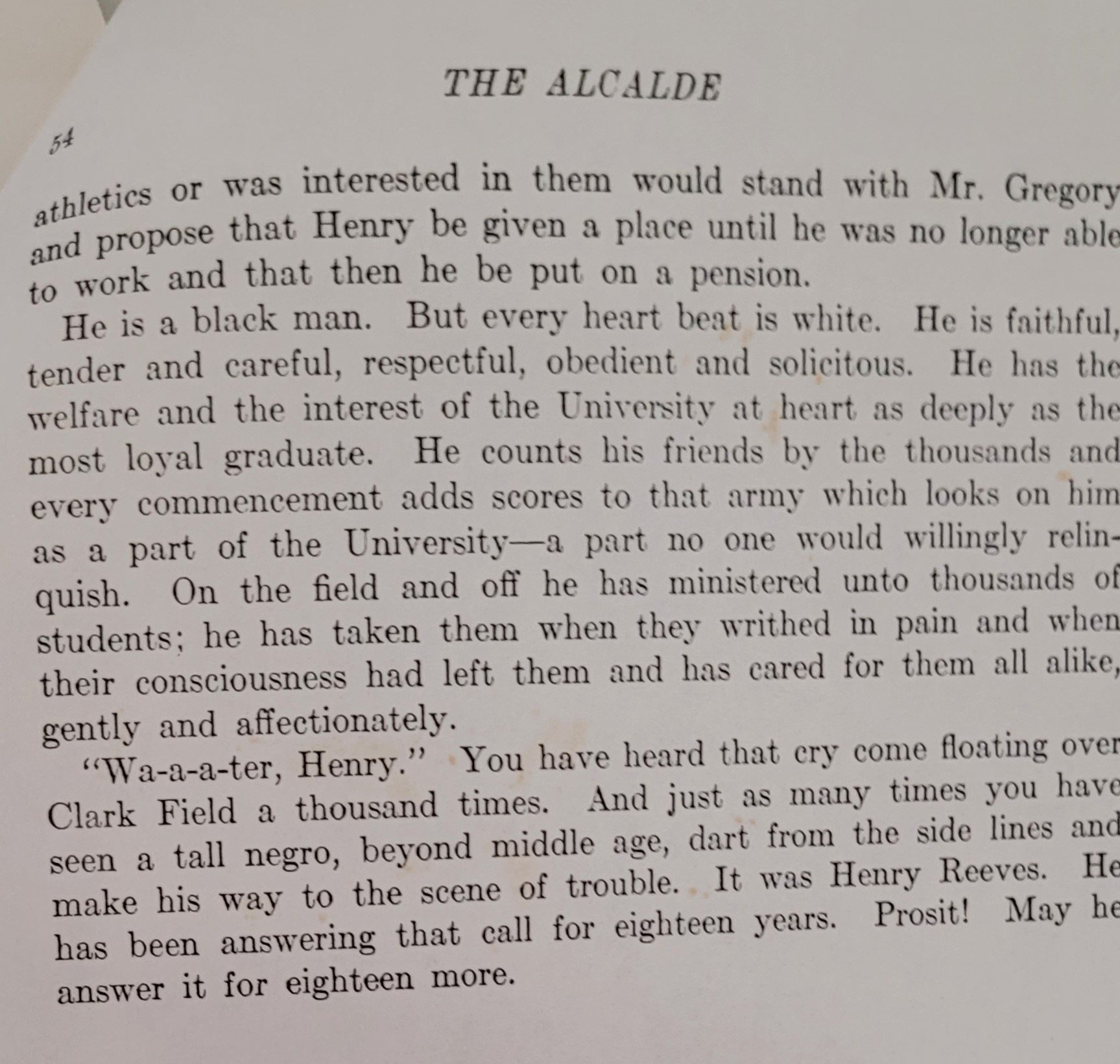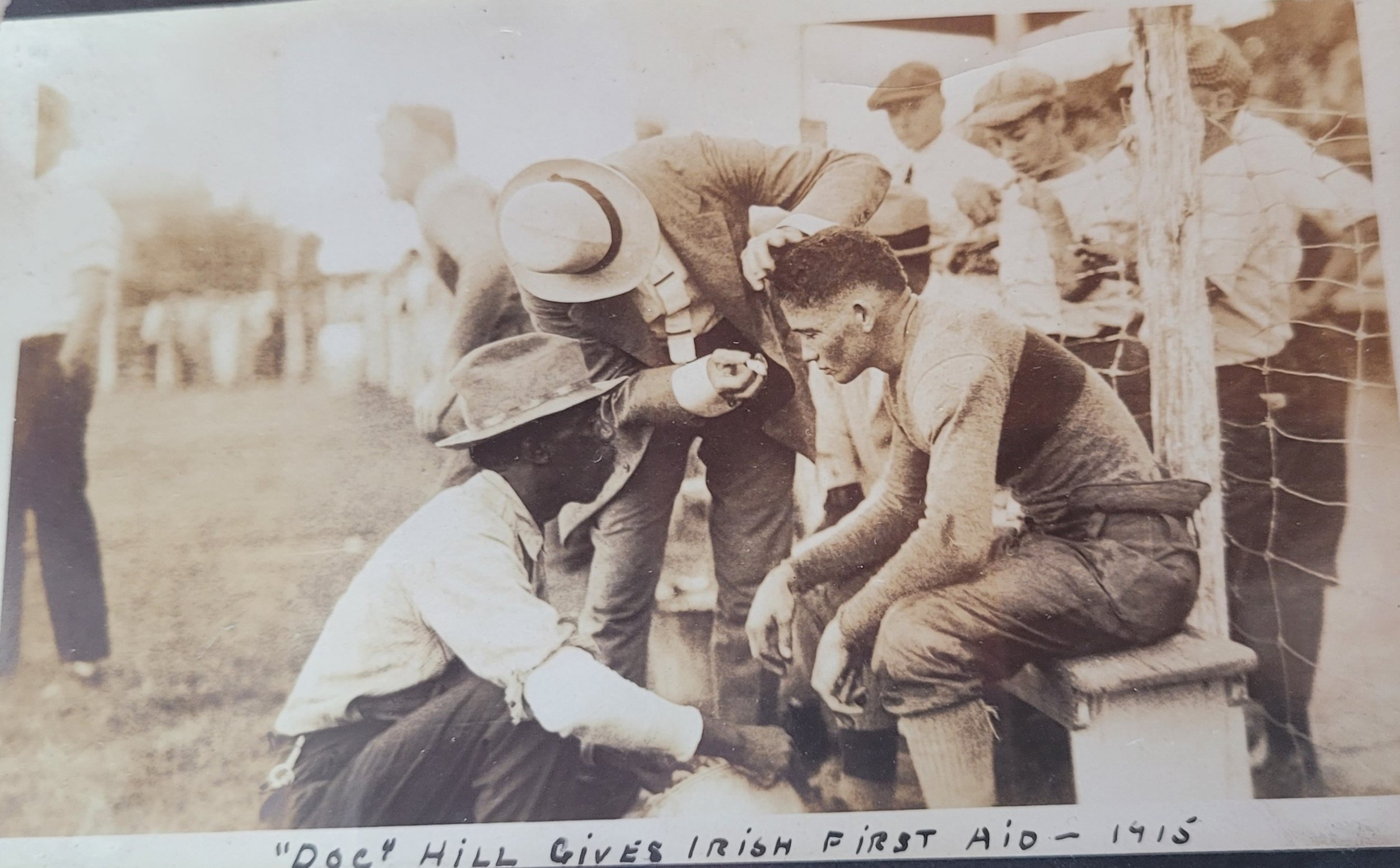DOC HENRY “Gunga Din”
Henry Reeves attends to injured Longhorns.
Long before the University of Texas at Austin hired Charlie Strong, even long before the first African-American athlete was admitted to the University of Texas at Austin, the university had Henry Reeves. From 1875 to 1915, Reeves was trainer, doctor and manager — generally the most significant figure in early UT football. The students loved him.
But Reeves, who was black, wasn’t permitted to eat with the players or room with them. Despite this separation, the students rebelled when the UT president wanted to fire him, and when he died, they collected money to pay his funeral expenses. Doc Henry, as the students called him, was elected posthumously to the Longhorn Hall of Fame.
More than 40 years after Reeves’ death, UT Austin allowed African-American athletes from other schools to participate in intercollegiate events, including football, on its campus but prohibited its own black students from playing on teams in those same events. Among Southwest Conference teams there was an unwritten policy that “if you don’t play your black students, we won’t play ours.” Few Texans noticed or cared if there was a black student in the Chemistry Department or the Latin Club, “but having just one on the football team was another matter,” according to Richard Pennington, author of Breaking the Ice: Racial Integration of Southwest Conference Football.
Doc Henry was the most important pioneer of all pioneers at UT. His legacy should be celebrated and honored for all time.
Even with a segregated south, Doc Henry managed to get a job at the UT athletic office that lasted from 1895 to 1915. He was the ultimate pioneer for blacks in the history of Texas Sports. His hard work and the respect he earned eventually led to his position on the football team as a water boy, assistant to the coaches, and equipment manager, and the name he cherished-- "Doc" His tools were a medicine bag, towel, and water bucket. He did everything in his power to heal the athletes and, along the way, became the benchmark for future managers and trainers. He was called "the most famous character connected with the football at the University of Texas in one publication." Once a school official released him, but the student body protested, and Doc kept his job. In 1915 Doc suffered a stroke and died 2 months later. The student body paid for his hospital bills, raised 103 dollars, and gave his wife $175 after his passing.
After his death the Houston Post paid a tribute to him. The Post asked a penetrating question as to why a system celebrates a man who was not allowed to attend UT or eat with the athletes. It takes 60 more years to answer this question and resolve the injustice.
The following article was written in the Houston Post. Read the article and form your on opinions . Regardless of content Doc Henry is an important part of Longhorn sports History.


